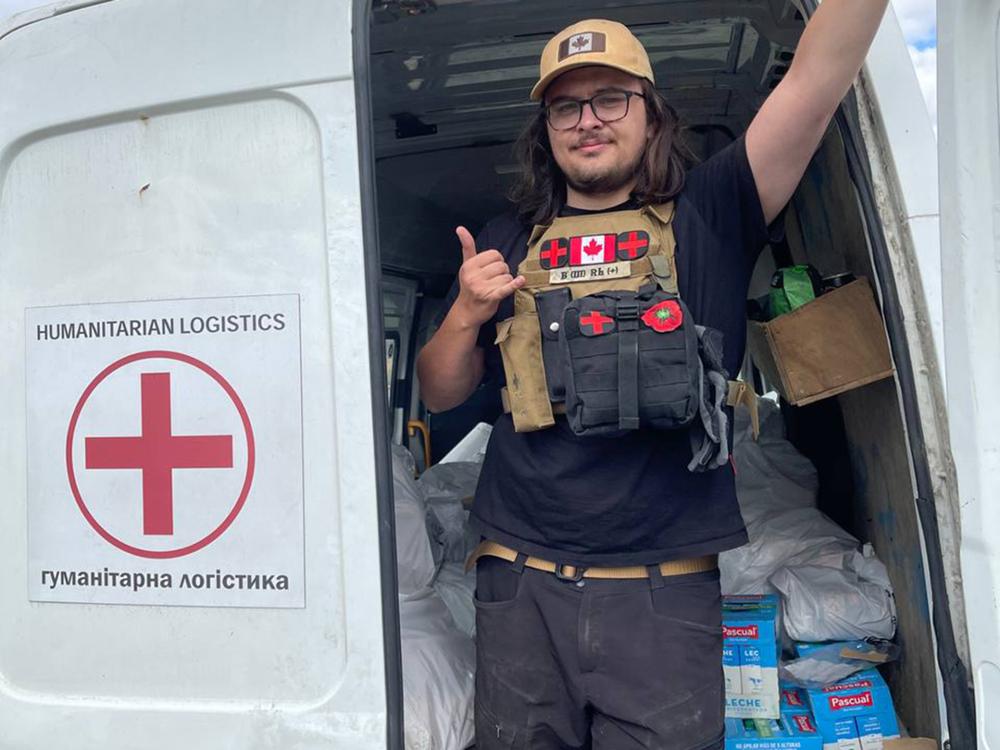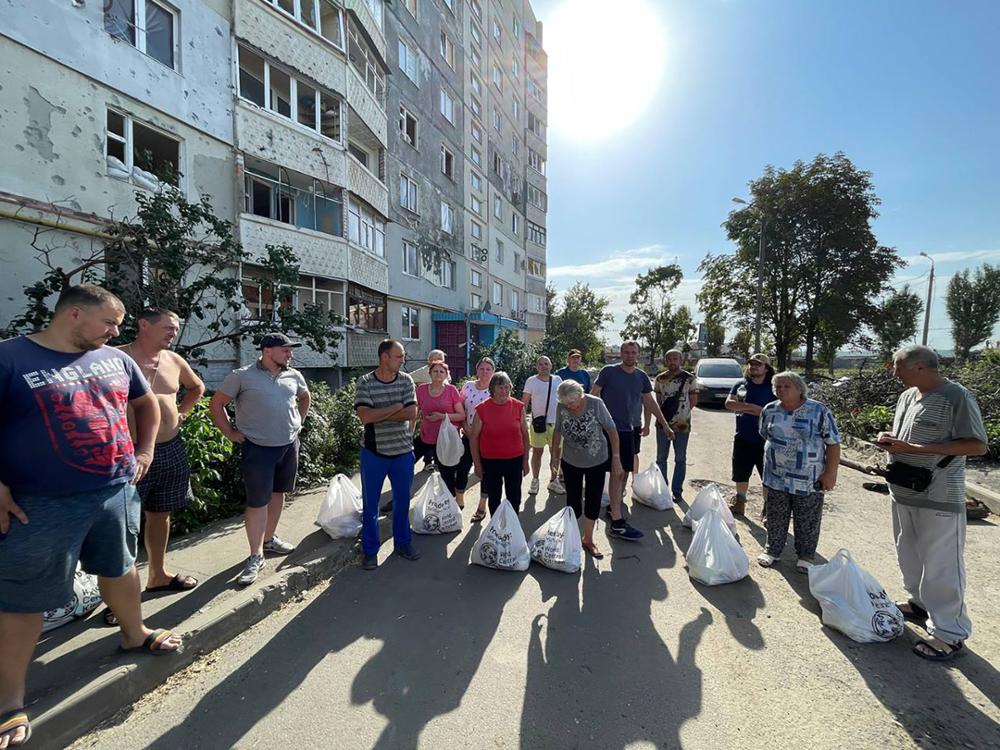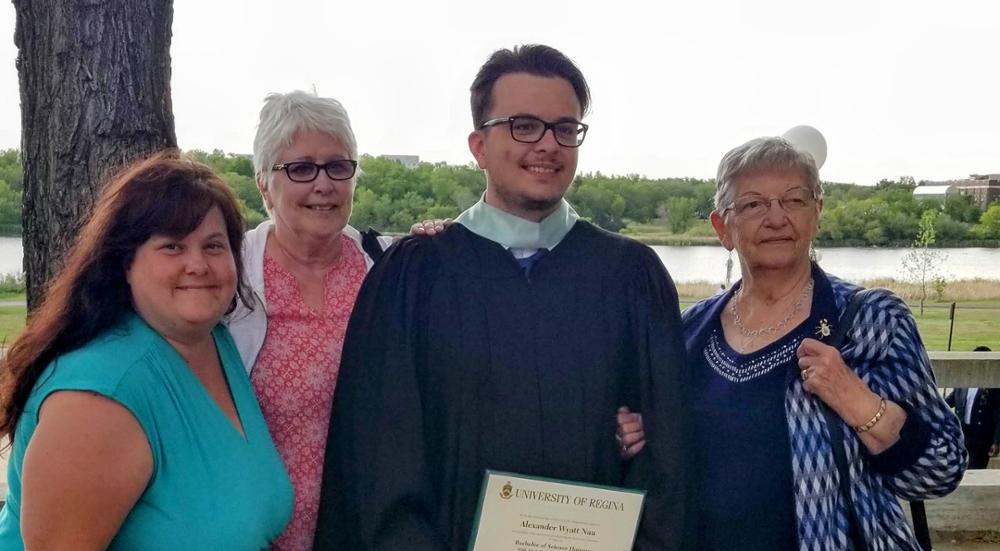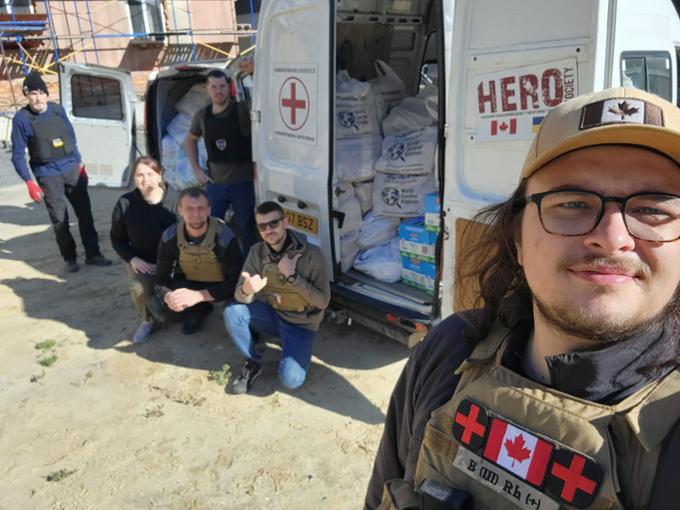Alex Nau is sitting in a garage waiting patiently for repairs to be done to the van he has been using to provide aid and transport to Ukrainians affected by the war.
The shop is in the city of Kharkiv, Ukraine approximately 40 kilometres from the Russian border. While Russian forces have failed to capture the capital city, the region has been partially occupied by Russian forces since their full-scale invasion began in February.
From Alex’s calm demeanor on the video call as he awaits the all-clear from the mechanic, you would never guess that his life has been in danger since the day he arrived eight months ago to provide humanitarian aid to the people of Ukraine.

Alex recently completed his Bachelor of Science Honours at the University of Regina and was halfway through his thesis-based Masters of Science in Computer Science when he decided to put his academics on hold.
After closely following the news of Russian military exercises in November 2021, Nau suspected that an invasion of Ukraine was imminent. His suspicions were confirmed when the invasion began on February 24, 2022.
Nau immediately got on the phone with embassies and humanitarian organizations to see how he could get involved, which led to Nau co-founding the HERO Society, a group of dedicated volunteers providing humanitarian aid on the frontlines in Ukraine.

Nau uses one word repeatedly to describe his experience in Ukraine: chaotic.
“When you go to a city of 80,000 people who haven’t had a stable food supply in two weeks and you’re giving out tons of food, it’s so stressful,” said Nau. “A lot of people are thankful, but you’re also sitting there making sure desperate people aren’t going to start a riot.”
“There’s been at least ten instances where I thought I was going to wind up dead, like when we had artillery land within a hundred metres of us or waking up at three in the morning to the sound of jets firing supersonic missiles and feeling the entire building shake.”
At the time of our interview, the HERO Society team was nearing the end of their mission and Alex was preparing to return home. He will eventually resume his studies, but Nau recognizes that it may not be an easy transition back to normal life.
“When you’re here you don’t really have a lot of time to process some of the things you see like the death and destruction,” said Nau. “I know when I’m home I’m going to have to go through some sort of switch in mental state and adjust before I get back to my studies.”

Alex with his family after receiving his Bachelor of Science Honours from the University of Regina. Photo: Jennifer Argue.
Alex believes that his experience as a U of R student allowed him to develop relationships with international students on campus and learn from their perspectives, which served as a catalyst to get involved in Ukraine. Nau is also appreciative of the support he has received from the U of R’s Computer Science program, and specifically his supervisor Dr. Howard Hamilton, for accommodating his request to pause his academics while he is volunteering in Ukraine.
After eight months of grueling conditions and life-threatening situations, Alex is now home, but the mission continues for Alex and the HERO Society as they stay involved with supporting other humanitarian organizations in Ukraine.
“Our team will be going home over the course of December, but it doesn’t mean our volunteering is done because there are many excellent Ukrainian organizations that do a lot of good,” said Nau.
“The best thing someone like me, or anyone from the West, can do is give financially. Because the GDP ratio is so low in Ukraine, any amount of money in Canada will go that much further in Ukraine.”
To find out how you can support the HERO Society and other organizations in Ukraine, please visit herosocietyukraine.org or email herosocietyukraine@gmail.com.
Developing the University of Regina's Impact & Identity is part of our 2020-2025 Strategic Plan kahkiyaw kiwȃhkomȃkȃninawak – All Our Relations. We are committed to strengthening our reciprocal relationships and serving the social, cultural, economic, environmental, and technological needs of our communities.
About the University of Regina
Set in the heart of the Canadian prairies we are a comprehensive, mid-sized university where the opportunities are as limitless as the horizon. Our campuses are on Treaty 4 and 6 - the territories of the nêhiyawak, Anihšināpēk, Dakota, Lakota, and Nakoda peoples, and the homeland of the Michif/Métis nation. It is our responsibility to strengthen relationships with Indigenous communities to build a more inclusive future for all. Our three federated colleges, 10 faculties, 25 academic departments, and 18 research centres foster innovative research with practical and theoretical applications. We are committed to cultivating the potential of our 16,000 students and supporting their health and well-being. We take learning beyond the classroom through work and volunteer experiences to develop career-ready graduates.
Let’s go far, together.
